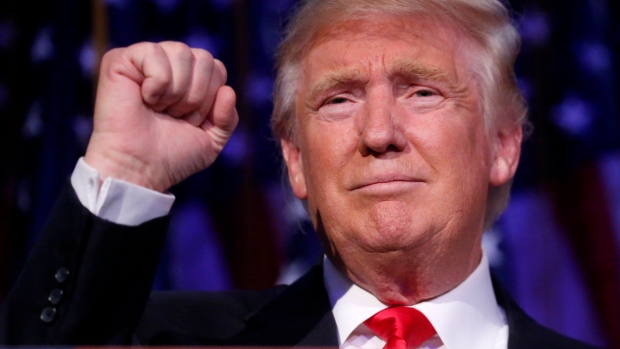
“He believes in making America great and to do that would involve strengthening America’s foreign policy. South Sudan is still America’s greatest achievement in Sub-Saharan Africa in the last decade and there’s no expectation that Trump administration will forget South Sudan.”
Until the surprise victory of Donald J. Trump on November 8th, most people were resigned to the continuation of the Obama foreign policies should Hillary Clinton win presidency. After all, in every campaign speech and debate, Clinton heaped praise after praise on every policy initiative undertaken by the President Barack Obama. Clinton was clearly pandering to the Obama voters, particularly African American and other minority groups.
When it comes to South Sudan, Clinton can be remembered for a memorable quote she made after South Sudan shut down its oil production in 2012 in response to expropriation of South Sudan oil by the Khartoum as a payment for exorbitant pipeline usage fee. The then secretary of State Clinton criticized the decision by South Sudan as irrational. She said something along the lines that, a “percentage of something is better than a percentage of nothing,” meaning that South Sudan should allow Khartoum to extort the country without any response.
This was the start of gradual shift in the Obama administration policy towards South Sudan. The Obama administration initially tried its best to effectuate a regime change in South Sudan, but towards the end began to realize that it was dealing with a very fluid situation that could result in a disaster because the supposed leader, Riek, turned out to be a tribal leader who relied on divisions to gain power. After all, similar efforts in Libya and elsewhere have not produced a desirable result.
However, the genie was out of the bottle because Riek and others, thought they had the unwavering support to proceed with their plans. This laid the foundation for division within the SPLM that culminated in the abortive efforts to take power by force by Riek Machar and his allies.
Riek and others within the SPLM began to publicly challenge President Salva Kiir because they felt emboldened and possibly had a tacit nod from some elements within the Obama administration — particularly in the State Department.
What are the implications of a Trump’s victory for South Sudan? In the short run, it’s unclear. What we know is that when Trump takes office in January 2017, the Obama foreign policy team will be replaced by Trump’s own. Mostly, Trump’s team will be comprised of mixed group from George W. Bush team and new blood.
For most part, Ambassador Molly Phee is right, the U.S. policy towards South Sudan is unlikely to see any major tectonic shift because it’s a rather bipartisan affair. Notably, a Republican Senator Bob Corker has not been particularly fond of the incumbent government in Juba in previous Senate hearings on South Sudan.
In the short run, it’s reasonable to expect that the Trump administration will press for the implementation of the peace agreement, and will not support any party that attempts to use force to gain power. After all, this is the regional position and there is no expectation that Trump administration will go against this position.
Trump has been critical of Obama’s policies in countries such as Libya. He has, in the past, pointed out that Obama’s policies created vacuum that has been filled by the likes of ISIS and other terrorist organizations in countries such as Libya, Syria, and Iraq. It is therefore reasonable to expect that Trump will not support any effort that can create instability in the region. Any effort to take power by force will not be overtly or covertly supported by the Trump administration if there is a potential of creating another Libya.
Another area where we expect to see changes is probably the level of aid that South Sudan receives from the U.S. government. The U.S. remains the largest donor to the war-affected country. It is unclear whether Trump administration will curtail foreign aid to the rest of the world.
I think the Trump administration will obviously review all foreign aid to see if they are producing the desired goal of advancing and strengthening America’s foreign policy objectives and interest.
More importantly, Trump will have a unified government led by the Republican party. This is an advantage because he can get his agenda passed, unlike Obama who did not see eye to eye with the Republicans in the congress and most of his agenda died on arrival at the committee level. Trump can leave his mark on Africa and South Sudan just like George W. Bush did. Being a pro-business president, I think he can support entrepreneurial activities in Africa and support the growth of business sector.
Overall, when it comes to South Sudan, I should express a courteous optimism that Trump administration will be preferable. While Clinton disparaged Trump as looking inward and trying to curtail America’s standing on the world stage, I think Trump is a rational and shrewd businessman who evaluates cost-benefit analysis and take an appropriate position.
He believes in making America great and to do that would involve strengthening America’s foreign policy. South Sudan is still America’s greatest achievement in Sub-Saharan Africa in the last decade and there’s no expectation that Trump administration will forget South Sudan.
*The author is a South Sudanese commentator and analyst. He can be reached at joe.tuombuk@gmail.com. He’s solely responsible for the views in this article.
Click HERE to read more.
You can publish this article on your website as long as you provide a link back to this page.

Be the first to comment